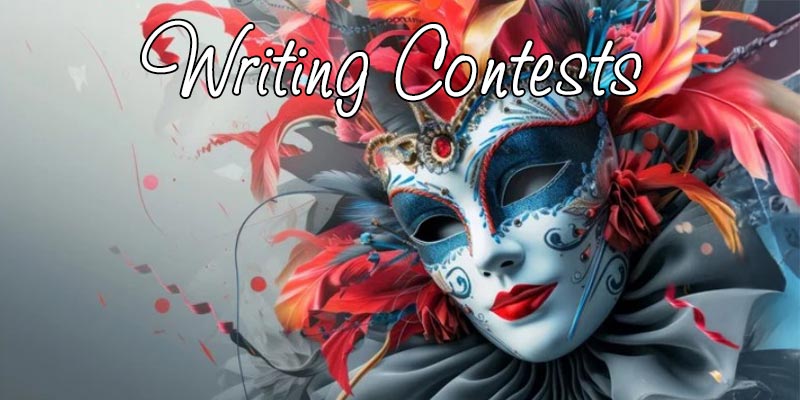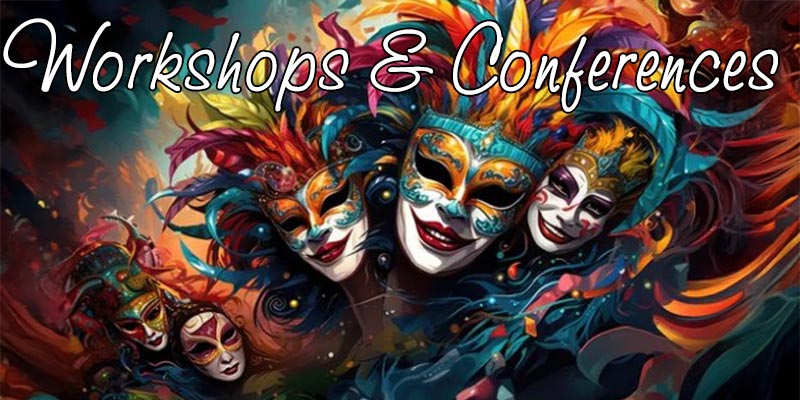
The site for writers of all genre, and the readers who love them. Find what you want to know.
The Sticky Story

by Emily Jean Carroll
What is a sticky story? A sticky story is the kind you want to write. I can think of three kinds.
You want your readers–beginning with the editor or publisher you send the story to–to turn page after page of your short story, chapter after chapter of your novel. You want it to be so exciting, so moving, so engrossing, so well written that your readers find it so sticky they can’t put it down.
Writing a sticky story is easy. You begin with a terrific hook, one that grabs the readers and holds their attention through the first few pages. You introduce your well-drawn, likable characters, you lay your plot, you place your setting and you let your readers know they are in for a great read.
You work the middle of your story so expertly that the tale unfolds as perfectly as an expensive paper fan. You include all the elements. You present conflict, and put in stumbling blocks for your characters to overcome. You build tension, you show your characters grow and mature, and you include minor characters and their problems as a bonus. You put in surprises, twists and turns that startle, amaze and delight you readers.
You build your sticky story through to an exciting ending. You tie up all the loose ends, stop writing when the story is told, and leave your readers wanting more.
That is the way one sticky story is written. It is a story so sticky the reader can’t put it down.
Another sticky story is one that presents characters of such qualities, be they good or bad, that they are remembered for years to come. They are vivid, full-bodied, endearing, or so dastardly that they are never forgotten.
This story has characters that stick in the minds of your readers.
We can picture characters in sticky stories so well that we’re often disappointed if a movie is made of the story and the movie version character is not the character we envisioned.
One sticky character I remember is one E. Annie Proulx created simply to give directions to her main characters in her book, THE SHIPPING NEWS. Her description of this very minor character was so complete and so vivid that I remember him today. Proulx created a character that stuck.
When you complete you own work, be it a short story or a novel length manuscript, try to put yourself in your reader’s place. Would the story capture you and hold your attention to the end? Would your characters seem real to you? Would they stick in your mind as if they were actual people you have met and are concerned about? Are they characters you would remember for years?
Ask yourself what you could do to strengthen your plot. Play around with “what if” scenarios. What if my character didn’t get the call about the accident until later? What if Susan didn’t want to marry Mark? What if there was a detour on their way that took them to . .? What if the baby turned out to be twins? What if . . .
Build your characters from birth on. Where did Susan grow up? What did Mark think of his father? Why does Susan chew her fingernails? Why can’t Mark make a commitment?
Your characters must have lived a complete life to be three-dimensional. Know who your characters are so they can be true to their background, to come to life in your story, to live on after the book is closed.
Take an old manuscript that didn’t quite turn out right, one that you gave up on, and try to make it a sticky story.
Oh. The third kind of sticky story? You probably have no trouble with that one. It’s the one you worked on while munching on that peanut butter sandwich . . . or was it that jelly doughnut?
AGENTS & EDITORS
- Agents: Knowing When To Hold One and When To Fold
- Copyright Primer, Know Your Rights
- Getting Offers from Multiple Literary Agents
- Landing An Agent Elements Of A Winning Query
- Literary Agents List
- Preditors and Editors
- Publishing, Writing Terms, Acronyms
- Tips for a Successful Editor Appointment
- Want More? Here’s How to Get It
- What NOT to Do When Beginning Your Novel
- Windup for the (Story) Pitch
- Write the Perfect Book Proposal
CALLS FOR SUBMISSIONS
![]()
CALLS FOR SUBMISSIONS MAIN PAGE
- 2026 FEB Calls for Submissions
- 2026 JAN Calls for Submissions
- 2025 DEC Calls for Submissions
- 2025 NOV Calls for Submissions
- 2025 OCT Calls for Submissions
- 2025 SEP Calls for Submission
- 2025 AUG Calls for Submission
- 2025 JUL Calls for Submission
- 2025 JUN Calls for Submission
- 2025 MAY Calls for Submission
- 2025 APR Calls for Submission
- 2025 MAR Calls for Submission
- 2025 FEB Calls for Submission
CHARACTERIZATION
CONFLICT
DIALOGUE
GRAMMAR & FORMATTING
![]()
GRAMMAR & FORMATTING MAIN PAGE
- Achieving 250 Words / 25 Lines Per Page
- And Sammy, Too? Oh, No!
- Changing Double Hyphens to EM Dashes in Word
- Edit Easier
- High Hopes–Avoiding Common Mistakes
- Misused Words
- Navigating In Your Novel
- Proofreaders Marks
- Research Links
- Rules for Writers
- Slang and Jargon Souces
- Tightening Your Manuscript and Trimming the Word Count
JOBS / MARKETS
- 3 Ways to Make Your Non-Fiction Article Pitch Stand Out
- 35 Online Work Ideas to Earn Good Money Whilst Studying
- An Interview with Holly Ambrose
- Beyond the Basics
- Copyright Primer, Know Your Rights
- Finding Markets Fiction and Nonfiction
- Freelance Writing 101
- Getting Offers from Multiple Literary Agents
- How To Market Your Book After You’ve Written It
- How to Write a Novel Synopsis
- How To Write Your Own Press Releases
- Magazine Links
- Making Money As a Corporate Freelancer
- Market News–All Genres
- Need a Clip? Open a Newspaper
- Newspaper Writing Resources
- Publisher’s Websites
- Selling to Children’s Markets
- Submitting to UK Markets
- Syndication 101
- the Power of the Press
- To Specialize, or Not to Specialize?
- Ultimate Guide to Being a Freelancer 2025 Update
- What Are Your Chances of Getting Published?
- Why Article Writing Should Be A Part Of Your Career Development Strategy
- Why E-Books?
- Write the Perfect Book Proposal
- Write Your Way to $1000 a Month
- Youth Writing Markets
PLOTTING
- 3 Ways to Know When to End Your Chapters
- 7 Excellent Plotting Tips from Agatha Christie
- 7 Ways to Add Great Subplots to Your Novel
- 8 Best Writing Tips to Become a Best Storyteller
- Does Your Plot Need a Subplot?
- Love to Write: Here Is How You Can Build Your Career
- Slang and Jargon Souces
- The All Purpose Plot
- Turning Points and Plot Points in Storytelling
- What NOT to Do When Beginning Your Novel
- Writing the Novel by the Numbers
POINT OF VIEW
QUERIES & PROPOSALS
- Agents: Knowing When To Hold One and When To Fold
- Getting Offers from Multiple Literary Agents
- How to Write a Novel Synopsis
- Landing An Agent Elements Of A Winning Query
- Path to Self-Publishing Success
- Publisher’s Websites
- Publishing, Writing Terms, Acronyms
- Science & Science Fiction Writing Organizations
- Submission Tracking
- Surviving a Book Proposal
- Windup for the (Story) Pitch
- Write the Perfect Book Proposal
- Writing a Synopsis & Query Letter
SUBMISSIONS
- Agents: Knowing When To Hold One and When To Fold
- An Interview with Jack Fisher
- Copyright Primer, Know Your Rights
- EBooks-Fears to Possibilities
- How to Write a Novel Synopsis
- Literary Agents List
- Path to Self-Publishing Success
- Publisher’s Websites
- Publishing, Writing Terms, Acronyms
- Science & Science Fiction Writing Organizations
- Selling to Children’s Markets
- Submission Tracking
- Surviving a Book Proposal
- What Are Your Chances of Getting Published?
- Write Your Way to $1000 a Month
- Writing a Synopsis & Query Letter
- Youth Writing Markets
SYNOPSIS
TIP SHEETS & GUIDELINES
![]()
TIP SHEETS & GUIDELINES MAIN PAGE
- Achieving 250 Words / 25 Lines Per Page
- Changing Double Hyphens to EM Dashes in Word
- Copyright Primer, Know Your Rights
- How To Write Your Own Press Releases
- Knowing and Finding Your Voice
- Plan for Success
- Publisher’s Websites
- Science & Science Fiction Writing Organizations
- What NOT to Do When Beginning Your Novel
- Why E-Books?
- Working with a Critique Group
WORKSHOPS & CONFERENCES
WRITING CONTESTS
![]()
ABOUT WRITING CONTESTS
- A Guide to Assessing Writing Contests
- Writer’s Conferences Do You Really Need To Attend?
- Writing Groups List
- 2026 FEB Writing Contests
- 2026 JAN Writing Contests
- 2025 DEC Writing Contests
- 2025 NOV Writing Contests
- 2025 OCT Writing Contests
- 2025 SEP Writing Contests
- 2025 AUG Writing Contests
- 2025 JUL Writing Contests
- 2025 JUN Writing Contests
- 2025 MAY Writing Contests
- 2025 APR Writing Contests
- 2025 MAR Writing Contests





